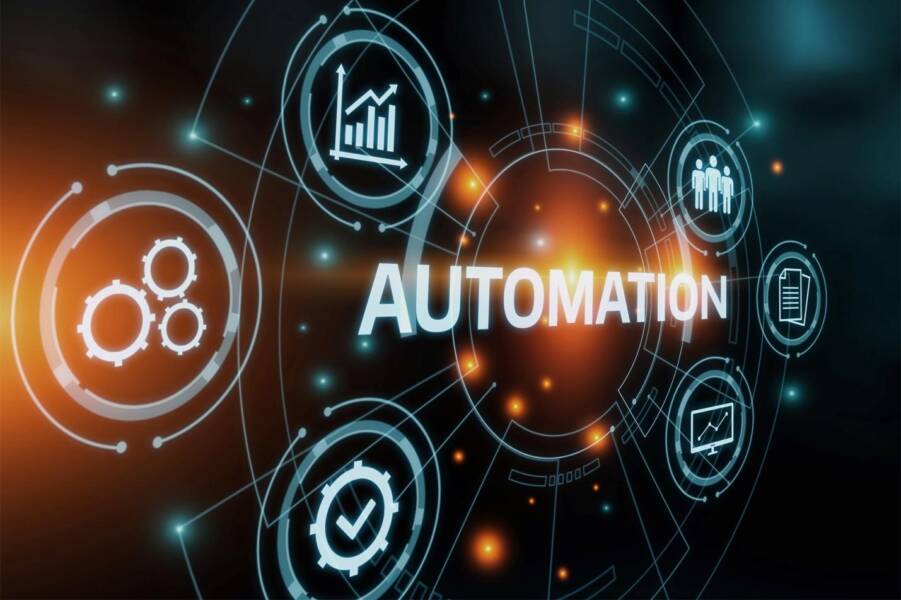Lots of industrial companies want to operate more efficiently and make more profit as they grow and develop. And modern technologies can help them with that. Automation is a key concept for the fourth industrial revolution and is critical for the success of industrial companies. Your company also can capitalize on the achievements of industrial automation. But at first you need to know what it can actually offer your business.
- You might also find it useful to familiarize yourself with the services provided by Sirinsoftware, the company that specializes in custom software development and designing industrial automation tools for small and medium-sized businesses.
A Few Words about Industrial Automation
What is industrial automation? Automation is the use of machines to carry out manufacturing processes with little human involvement. Industrial automation allows for facilities to utilize these processes for a more optimized operation. Manufacturers use machines that are operated through different control systems like programmable logic controllers or PLCs, human machine interfaces, or HMIs, and robotics.
Automation uses logic and programming to feed the machine information on how to carry out a certain function. These machines allow for high control, which improves manufacturing performance.
The industrial automation industry is projected to reach more than 300 billion dollars by 2030. Hence, the growing interest of modern companies in industrial automation systems. Today’s state-of-the-art technologies also go a long way in facilitating industrial automation. Thus, blockchain, IoT, and AI-powered techs provide the industrial automation industry with more tools, which help improve business processes and boost manufacturing productivity.
Types of Industrial Automation
There are few different types of industrial automation systems. Hard, or fixed, automation is made for repetitive tasks with high turnout rates. Programmable automation is used for batch production where the automation process can be modified.
Major Benefits
Some of the benefits of industrial automation in a manufacturing environment include high reliability, increased productivity, quality enhancement, and reduced labor expenses.
Industrial automation systems go a long way towards helping companies ensure continuous and uninterrupted mass production. This allows them to significantly improve their productivity and reduce assembly times.
As it has already been noted earlier, industrial automation allows for higher control levels and more careful monitoring of product quality in different manufacturing stages. And it was made easy with the use of the PRTG OPC UA server, which is a software application that can be used to monitor and control industrial automation systems. This means less human involvement and consequently, fewer human errors.
Furthermore, industrial automation systems help to ensure greater consistency on the production site. It’s not a secret that computerized machines work at a specified pace, which is continuous and predictable. As a result, automated production processes boast considerably higher stability and solidity that those managed manually.
With automation systems, it’s also easier to achieve flexibility at the production facility. Such systems spare manufacturers the bother of training personnel and employing new tools every time a new task needs to be implemented. All that needs to be done is reprogram your machine or a robot and put new processes into action. Such soft automation allows for greater flexibility and implementing changes to products quickly and easily.
Industrial automation makes it possible to free up valuable time and allocate employees’ workload more efficiently. This means your team will need to devote less time to repetitive, tedious, and monotonous tasks and focus more on creative tasks and strategic decisions.
Industrial Automation in Action
Industrial automation in a manufacturing environment may also include various types of equipment. For instance, automated material handling systems are specialized autonomous and compact in size for fast inventory retrieval speed. These systems can be customized for the environment and needs of the facility there are housed in. 3D printing machines allow manufacturers to create 3D models of particular items from a computer. CNC machines come in many varieties. This type of machine can take material and reconfigure it into a precise form within the operators given measurements and requirements. Robots complete repetitive and mundane tasks. These types of tasks can easily be programmed and given to a machine to perform.
Now it’s about time you took advantage of industrial automation and made your business more successful, efficient, and profitable.
TechnologyHQ is a platform about business insights, tech, 4IR, digital transformation, AI, Blockchain, Cybersecurity, and social media for businesses.
We manage social media groups with more than 200,000 members with almost 100% engagement.








































